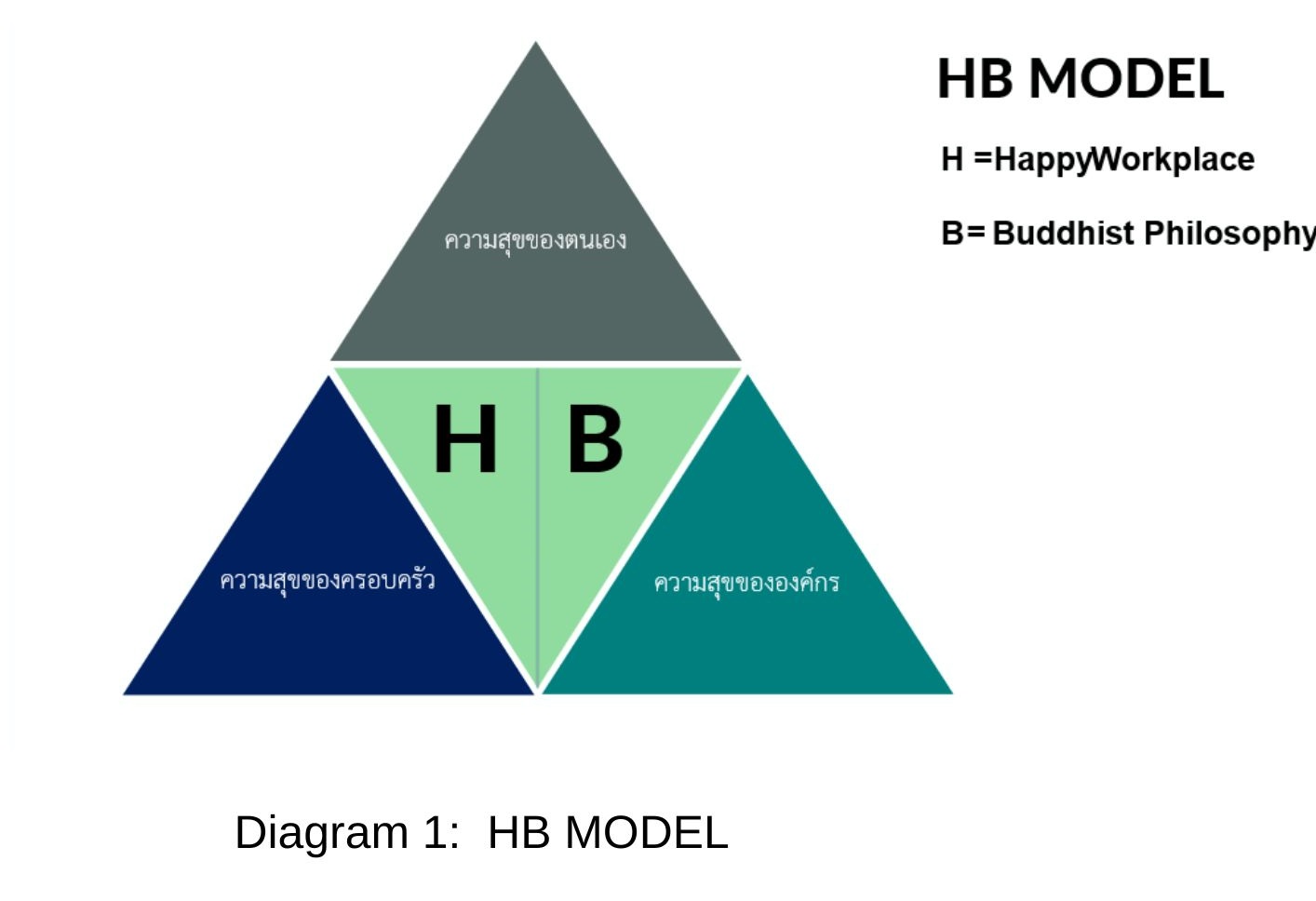Happy Workplace According to Buddhist Philosophy
Keywords:
Happy, Happy Workplace, Buddhist PhilosophyAbstract
This academic article aims to study Happy Workplace According to Buddhist Philosophy. The study found that happiness is something universally desired, even in work life. Therefore, creating happiness at work is a crucial factor that enables smooth organizational management. Creating happiness in organizations leads to successful work practices under the collaboration of individuals within the organization. It should involve management systems that promote self-realization, personal growth, and systematic work creation. Utilizing important Buddhist principles to foster happiness at work helps to establish internal stability and strength, translating attitudes and behaviors externally towards collective happiness and prosperity in organizational work. Key Buddhist philosophical principles contributing to happiness at work include the principles of Dhamma and moral virtue. The newly formulated knowledge about Happy Workplace According to Buddhist Philosophy derived from this synthesis of data is referred to as the HB Model, composed of two critical components: Part H : Happy Workplace, representing happiness in the workplace, divided into two dimensions: 1) External work dimension, including physical workspace conditions. 2) Internal work dimension, comprising mental states such as tranquility, peace, and comfort derived from inner work (meditation) with wisdom. Part B : Buddhist Philosophy, encompassing Buddhist teachings or principles that collectively contribute to organizational happiness, including the four Noble Truths and other moral principles that complement and enhance the completeness of the Four Noble Truths. These two components play a role in creating holistic happiness across three dimensions: individual happiness, family happiness, and organizational happiness.
References
กรมสุขภาพจิต กระทรวงสาธารณสุข. พระบรมราโชวาท ในพิธีพระราชทานปริญญาบัตรแก่บัณฑิตมหาวิทยาลัยมหิดล. [ออนไลน์]. แหล่งที่มา : http://dmh.go.th/test/whoqol. [19 มีนาคม 2567]
ชินกร น้อยคํายาง และ ปภาดา น้อยคํายาง. (2555). ปัจจัยที่ส่งผลต่อดัชนีความสุขในการ ทำงานของบุคลากรสำนักหอสมุดกลาง มหาวิทยาลัยศรีนครินทรวิโรฒ. รายงานการวิจัย. สำนักหอสมุดกลาง มหาวิทยาลัยศรีนครินทรวิโรฒ.
ชิสา กันยาวิริยะ และเมธา หริมเทพาธิป. (2565). การศึกษาเชิงวิเคราะห์หลักภาวนา 4 ตามหลักพุทธปรัชญาเถรวาท. วารสารพุทธมัคค์, 7(2), 229-235.
ชิสา กันยาวิริยะ, สิรินทร์ กันยาวิริยะ และเมธา หริมเทพาธิป. (2565). การบริหารตนตามหลักพุทธธรรมสำหรับนักธุรกิจ. วารสารวิจัยธรรมศึกษา, 5(2), 275-281.
ปรมต วรรณบวร. (2560). การสร้างองค์กรแห่งความสุขด้วยหลักพุทธธรรม. วารสารนวัตกรรมการศึกษาและการวิจัย, 1(1), 25-38.
รวมศิริ เมนะโพธิ. (2550). เครื่องมือวัดการทำงานอย่างมีความสุข กรณีศึกษานักศึกษาภาคพิเศษระดับปริญญาโท สถาบันบัณฑิตพัฒนบริหารศาสตร์. สารนิพนธ์วิทยาศาสตรบัณฑิต. สถาบันบัณฑิตพัฒนบริหารศาสตร์ : มหาวิทยาลัยหอการค้าไทย.
เรวดี ศิริภาพ. (2562). “รูปแบบการพัฒนาสุขภาวะเชิงพุทธบูรณาการของพนักงานบริษัท”. พุทธศาสตรดุษฎีบัณฑิต. บัณฑิตวิทยาลัย : มหาวิทยาลัยจุฬาลงกรณราชวิทยาลัย.
ศิรินทิพย์ ผอมน้อย. ความสุขในที่ทำงาน. [ออนไลน์]. แหล่งที่มา : http://www.okanation.nationtv/blog/clinicalpsychology/2017/06/13/entry2. [22 กุมภาพันธ์ 2567]
ศิรินันท์ กิตติสุขสถิต และคณะฯ. (2555). คู่มือการวัดความสุขด้วยตนเอง HAPPINOMETER. กรุงเทพฯ : ธรรมดาเพลส.
สิรินทร์ กันยาวิริยะ, ชิสา กันยาวิริยะ และเมธา หริมเทพาธิป. (2565). การบริหารคนตามหลักพุทธธรรมสำหรับนักธุรกิจ. วารสารวิจัยธรรมศึกษา, 5(2), 240-249.
สุทธิรัตน์ ชูเลิศ และคณะ. (2565). การเสริมสร้างความสุขของบุคลากรในองค์กรสร้างสุขตามหลักพุทธจิตวิทยาของมหาวิทยาลัยมหาจุฬาลงกรณราชวิทยาลัย. วารสาร มจร การพัฒนาสังคม, 7(1), 54-65.
สุภัทรา เผือกโสภา. (2556). การศึกษาความสัมพันธ์ระหว่างปัจจัยส่วนบุคคลกับความสุขใน การทำงาน กรณีศึกษา อาจารย์และเจ้าหน้าที่มหาวิทยาลัยหอการค้าไทย. การศึกษาค้นคว้าด้วยตนเอง. หลักสูตรบริหารธุรกิจมหาบัณฑิต : มหาวิทยาลัยหอการค้าไทย.
อำพล จินดาวัฒนะ, นพ. (2561). สุขภาพคนไทย 2561. นครปฐม : สถาบันวิจัยประชากรและสังคม มหาวิทยาลัยมหิดล.

Downloads
Published
How to Cite
Issue
Section
License
Copyright (c) 2024 Institute of Sufficiency Journal

This work is licensed under a Creative Commons Attribution-NonCommercial-NoDerivatives 4.0 International License.



